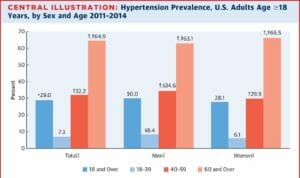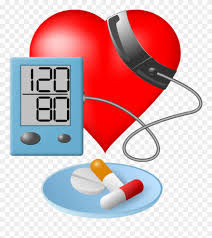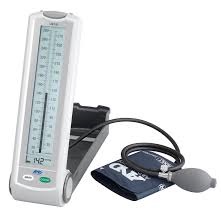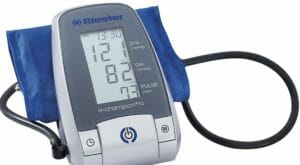What comes to your mind after reading the heading? Something that kills without you knowing about it? If this was your thought, then you are on the right track. Not to worry, there are a lot of ways to reduce the power of this “silent killer” be it a hitman, assassin, hypertension, diabetes or death.
see also: diabetes mellitus classification
- Is death a killer? I have no idea too
What is this silent killer? This silent killer is known as hypertension. The reason why hypertension is also called the silent killer is that it’s asymptomatic at the beginning (i.e. the symptoms wouldn’t show at the beginning), so you might have hypertension and may not know about it.
What is hypertension? Okay, before I continue, there are some keywords I think you should know;
KEYWORDS IN HYPERTENSION
- Blood pressure
- Systole
- Diastole
- Blood vessels
- Lumen
Do not be worried about these big words, I would explain them in the easiest way.
Okay, let’s go. I hope we all know what the blood is, and we know that the heart pumps the blood to various organs in the body. So how does the blood get to the organs? They get to the organs through the blood vessels (veins, arteries, capillaries). Think of the blood vessels as transport buses, the blood as their passengers, and the organs (brain, liver, kidney, etc.) as their destination.
Now, the blood vessels are like pipes, like the pipes in our houses, but they are way smaller in size and cylindrical in nature. These vessels have a hollow passageway within them, this passageway is called the lumen (try not to forget this, it is very critical in explaining what hypertension is).
So, this blood passes through the lumen in the blood vessels to get to their destination. Diastole and systole are phases in the beating of the heart. Systole is the period of contraction of the heart. This contraction enables the heart to pump out blood into the blood vessels. Just imagine the systole phase doesn’t happen ehn? The person is gone oh.
Okay, back to track. The diastole is a phase in which the heart relaxes. This relaxation allows blood to flow into the heart and undergoes some processes (would be explained in another topic) and pumped out again.
WHAT IS BLOOD PRESSURE
Now, what is blood pressure? Wait, before I answer the question ehn, I want to clear the air of a contradictory statement that has been on a while. blood pressure is not hypertension, I repeat blood pressure is not hypertension. If blood pressure is hypertension, then everyone would be hypertensive. Blood pressure is the pressure that the blood exerts on the blood vessels, as it moves through the lumen of the blood vessels. Do you understand?
This blood pressure is expressed as a ratio of the systolic blood pressure to the diastolic blood pressure.
With this, we can now fully define hypertension.
WHAT IS HYPERTENSION
Hypertension is a sustained increase in blood pressure i.e. sustained high blood pressure, that’s all.
In hypertension, the lumen decreases in diameter thus there is a smaller passageway for the blood to pass through. So, the blood has to apply more pressure on the walls of the vessels, so that it can pass through successfully. When this increased pressure becomes persistent, it leads to hypertension.
This blood pressure has a normal range, from 120/90 to 130/90 is normal for an adult, but when it increases to 140/90, then that’s when the trouble will start. At first, when it gets to 140/90, you will not experience any symptom, and that’s how it’ll be until it increases to about 180/100. This blood pressure level is called a hypertensive emergency. At this stage, the patient will start to see signs of organ damage such as blurry visions, kidney failure, fatigue, tiredness, confusion, headaches, etc. I hope you are following?
RISK FACTORS
There are some factors (called risk factors) that make an individual more likely to be hypertensive. They include; stress, excessive alcohol consumption, age (from 40 and above, few cases include younger individuals), excessive salt intake, obesity, race (studies have shown that Africans are more likely to be hypertensive than Caucasians), using tobacco, weed, too little potassium in your diet, physical inactivity, genetics.

SOLUTION
If you find out that you’re hypertensive, no problem, there are a lot of drugs that can be used to manage hypertension. Funny enough, they are not even expensive. So, meet a doctor, run some tests and get your prescription and please complete your prescription.
Those of us that are not hypertensive (having a normal blood pressure), are not exempted oh. Watch the food you eat, exercise regularly, eat fruits and check your blood pressure regularly.
There is some automatic sphygmomanometer (the machine used to check blood pressure), that you can buy and check your blood pressure at the comfort of your home.
recommended: good healthy habits that will guarantee you long life
HYPERTENSION MANAGEMENT
Hypertension is not a disease, it’s a circulatory disorder, so it cannot be treated but it can be managed. This means when you start taking your anti-hypertensive drugs (drugs used in the management of hypertension), the blood pressure is reduced to one that you can live with, without having organ damage but the blood pressure isn’t brought back to the normal blood pressure level. Hope you understand?
Well, I guess you’ve been educated on hypertension, so get yourself checked today, at the nearest clinic, to know if you’re hypertensive or not and do well to take the necessary measures.
Here’s what the world health organization has to say about hypertension
Share to family and friends and save a life today and also, leave your comments below
related topic: Peptic Ulcer Disease – The PUD



[…] related topics Diabetes Mellitus Classification Hypertension -The Silent Killer […]